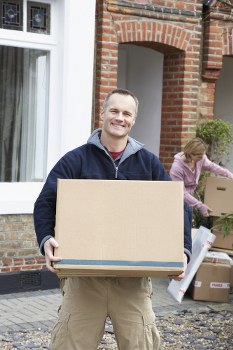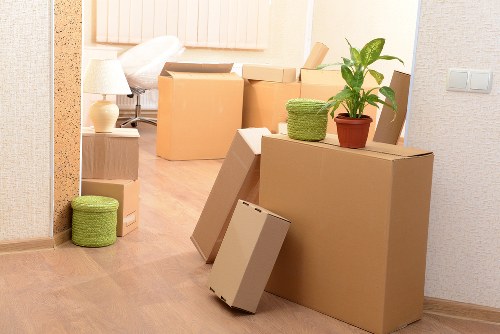White Goods Recycle North Watford

Introduction to White Goods Recycling
Recycling white goods in North Watford is an essential service that helps maintain environmental sustainability. White goods, such as refrigerators, washing machines, and dishwashers, are large appliances that many households replace periodically. Proper recycling ensures that valuable materials are recovered and harmful substances are disposed of safely.
Residents of North Watford have access to several recycling centers and services dedicated to handling white goods. These services not only help reduce landfill waste but also promote the reuse of components, contributing to a greener community.
Understanding the process and benefits of white goods recycling can empower individuals to make informed decisions about disposing of their old appliances responsibly.

Benefits of Recycling White Goods
Recycling white goods offers numerous benefits, both environmentally and economically. Here are some key advantages:
- Environmental Protection: Proper recycling prevents the release of harmful chemicals like refrigerants and heavy metals into the environment.
- Resource Conservation: Recycling materials such as steel, aluminum, and plastics reduces the need for raw material extraction.
- Energy Savings: Producing products from recycled materials typically consumes less energy compared to manufacturing from virgin resources.
- Economic Benefits: Recycling creates jobs in collection, processing, and manufacturing sectors.
- Reduced Landfill Use: Diverting white goods from landfills reduces the burden on waste management systems.
These benefits highlight the importance of participating in white goods recycling programs available in North Watford.
Additionally, recycling can often provide financial incentives, such as discounts on new appliances or tax benefits, encouraging more residents to take part.

How to Recycle White Goods in North Watford
Recycling white goods in North Watford is a straightforward process. Here’s a step-by-step guide to help you navigate the recycling process:
- Identify the Appliance: Determine which white goods you need to recycle and ensure they are eligible for recycling.
- Find a Recycling Center: Locate a nearby recycling facility or collection point in North Watford. Many local councils provide dedicated services for white goods disposal.
- Prepare the Appliance: Remove any personal items, disconnect the appliance, and ensure it’s ready for transport. Some centers may require you to drain fluids or dismantle components.
- Transport to the Facility: Safely move the appliance to the recycling center. Some services offer collection, especially for large or heavy items.
- Processing: The recycling center will handle the safe disposal and processing of the appliance, extracting recyclable materials and managing waste responsibly.
Many recycling services in North Watford also offer assistance with the removal and transport of white goods, making the process even more convenient for residents.
It’s advisable to check with your local recycling provider for any specific requirements or guidelines to ensure a smooth recycling experience.

Local Recycling Facilities and Services
North Watford boasts several recycling facilities and services dedicated to handling white goods. These centers are equipped to manage large appliances efficiently and responsibly.
- North Watford Recycling Centre: The primary facility offering comprehensive recycling services for various white goods, ensuring proper handling and material recovery.
- Eco-Collect Services: A local provider that offers pick-up and drop-off services, making it easier for residents to recycle their appliances without the hassle of transportation.
- GreenCycle North Watford Specializes in environmentally friendly recycling practices, focusing on maximizing material recovery and minimizing waste.
These facilities adhere to strict environmental regulations, ensuring that all white goods are recycled in an eco-friendly manner.
Additionally, many of these centers provide educational resources and support to help residents understand the importance of white goods recycling and how to participate effectively.

Costs and Funding for White Goods Recycling
Recycling white goods in North Watford is often cost-effective, with many services offering free or low-cost recycling options. Funding for these services typically comes from local government budgets, environmental grants, and recycling program fees.
- Free Recycling: Many recycling centers offer free collection and recycling services for white goods, particularly when they are replaced with new energy-efficient models.
- Subsidized Programs: Subsidies from local councils may reduce the cost for residents, making recycling more accessible.
- Incentive Programs: Some programs provide financial incentives, such as vouchers or discounts on new appliances, to encourage recycling participation.
These financial supports help ensure that recycling services are available to all residents, promoting widespread participation in environmental sustainability efforts.
It’s recommended to check with your local recycling provider to understand any potential costs or available financial assistance for recycling your white goods.
Environmental Impact of Proper White Goods Recycling
Properly recycling white goods in North Watford significantly impacts the environment positively. By ensuring appliances are recycled correctly, we can mitigate the adverse effects of improper disposal.
- Reduction in Greenhouse Gas Emissions: Recycling materials requires less energy, resulting in lower carbon emissions compared to producing new materials.
- Prevention of Soil and Water Pollution: Hazardous substances from white goods, if not recycled properly, can contaminate soil and water sources.
- Energy Conservation: Recovering and reusing materials from old appliances conserves natural resources and reduces the need for resource extraction.
- Support for Circular Economy: Recycling promotes a circular economy where materials are reused and repurposed, reducing waste and fostering sustainability.
These environmental benefits underscore the importance of utilizing white goods recycling services available in North Watford.
Moreover, community participation in recycling initiatives fosters a culture of environmental responsibility, encouraging others to adopt sustainable practices.
Challenges in White Goods Recycling
While white goods recycling is beneficial, it also presents certain challenges that need to be addressed to improve efficiency and participation.
- Logistical Issues: Transporting large appliances can be difficult, especially for residents without suitable vehicles or storage space.
- Cost Constraints: Although many services are free or subsidized, some may incur costs that can deter participation.
- Awareness and Education: Lack of awareness about available recycling options and their benefits can limit participation rates.
- Technological Limitations: Efficiently recycling certain materials, such as electronics within white goods, requires advanced technology and processes that may not be widely available.
Addressing these challenges involves enhancing infrastructure, increasing funding for recycling programs, and conducting public awareness campaigns to educate residents about the importance and methods of recycling white goods.
Collaboration between local authorities, recycling facilities, and the community is essential to overcome these obstacles and improve white goods recycling rates in North Watford.
Future of White Goods Recycling in North Watford
The future of white goods recycling in North Watford looks promising, with ongoing efforts to enhance recycling technologies and expand services. Innovations in recycling processes are expected to increase the efficiency and effectiveness of material recovery from old appliances.
- Advanced Recycling Technologies: Implementation of state-of-the-art technologies will improve the separation and processing of materials, making recycling more efficient.
- Extended Producer Responsibility (EPR): Policies that hold manufacturers accountable for the entire lifecycle of their products can drive better design for recyclability and increased recycling rates.
- Community Engagement: Increasing community involvement through education and incentives will foster a culture of recycling and sustainability.
- Enhanced Recycling Infrastructure: Expanding the capacity and accessibility of recycling centers will accommodate growing demand and improve service delivery.
These advancements will contribute to more sustainable waste management practices and a healthier environment for North Watford residents.
Continuous collaboration between government bodies, recycling facilities, and the community will be crucial in achieving these goals and ensuring the success of white goods recycling initiatives.
Local Recyclers and Partnerships
North Watford is home to several local recyclers and partnerships committed to promoting white goods recycling. These organizations work together to provide comprehensive services and support sustainable practices within the community.
- Watford Green Initiative: A collaborative effort between local businesses and the council to enhance recycling programs and promote environmental education.
- EcoWatford Partners: A network of recycling centers and organizations focused on improving recycling rates and reducing waste in the area.
- Community Recycling Drives: Regular events organized by local groups to collect white goods and other recyclable materials, encouraging community participation.
These partnerships play a vital role in expanding recycling capabilities and raising awareness about the importance of white goods recycling in North Watford.
By leveraging the strengths of each partner, these collaborations ensure that recycling services are efficient, accessible, and aligned with the community’s sustainability goals.
How to Encourage More Recycling in Your Community
Encouraging more white goods recycling in North Watford involves community engagement and proactive initiatives. Here are some strategies to boost recycling participation:
- Educational Campaigns: Informing residents about the benefits of recycling and how to participate through workshops, flyers, and online resources.
- Incentive Programs: Offering rewards such as discounts on new appliances or vouchers to motivate residents to recycle their old white goods.
- Convenient Recycling Options: Providing easily accessible recycling centers and offering pick-up services to remove barriers to participation.
- Collaboration with Local Businesses: Partnering with retailers and service providers to promote recycling initiatives and integrate recycling into purchasing processes.
- Policy Support: Implementing local policies that support recycling efforts, such as bans on landfilling certain appliances and requirements for manufacturers to take responsibility for product disposal.
These strategies can create a supportive environment for recycling, making it a natural and convenient choice for residents.
Community leaders and organizations play a crucial role in driving these initiatives, ensuring that recycling becomes an integral part of the local culture.
Recycling Regulations and Standards
White goods recycling in North Watford is governed by a set of regulations and standards designed to ensure environmental protection and effective waste management. Understanding these regulations helps ensure compliance and promotes responsible recycling practices.
- Waste Electrical and Electronic Equipment (WEEE) Directive: A European Union directive that sets guidelines for the collection, treatment, and recycling of electrical and electronic waste, including white goods.
- Local Council Regulations: North Watford’s local council has specific rules regarding the disposal and recycling of white goods, including restrictions on landfilling and requirements for recycling facilities.
- Health and Safety Standards: Regulations that ensure the safe handling and processing of white goods to protect workers and the environment from hazardous materials.
- Certification Requirements: Recycling facilities must adhere to certain certifications to operate legally, ensuring they meet environmental and safety standards.
Compliance with these regulations is essential for maintaining environmental integrity and ensuring that recycling processes are conducted safely and effectively.
Residents should familiarize themselves with local recycling laws and guidelines to ensure their white goods are recycled appropriately.
The Role of Technology in Enhancing Recycling Efficiency
Technology plays a pivotal role in enhancing the efficiency and effectiveness of white goods recycling in North Watford. Advances in recycling technologies contribute to better material recovery and waste management.
- Automated Sorting Systems: Use of sensors and robotics to accurately sort materials, increasing the speed and accuracy of the recycling process.
- Advanced Dismantling Techniques: Machinery that can efficiently disassemble white goods, allowing for the separation of different materials with minimal manual intervention.
- Material Recovery Technologies: Innovations that improve the extraction and purification of recyclable materials, enhancing their quality and usability in new products.
- Data Management Systems: Software that tracks and optimizes recycling operations, ensuring efficient resource allocation and process management.
These technological advancements not only boost recycling rates but also reduce costs and environmental impact, making white goods recycling more sustainable and scalable.
Investment in technology is crucial for the continuous improvement of recycling facilities, ensuring they remain capable of handling the growing volume of white goods and other recyclable materials.
Community Success Stories
North Watford has witnessed several success stories in white goods recycling, demonstrating the community’s commitment to sustainability and environmental responsibility.
- Watford Green Initiative: Successfully increased white goods recycling rates by 30% through targeted awareness campaigns and community engagement.
- EcoWatford Partners: Implemented a comprehensive recycling program that streamlined the collection and processing of white goods, setting a benchmark for other communities.
- Local Recycling Drives: Organized events that mobilized thousands of residents to recycle their old appliances, significantly reducing landfill waste.
These stories highlight the positive impact of collective efforts and the importance of ongoing community participation in recycling initiatives.
Celebrating these achievements inspires further action and reinforces the value of recycling within the community.
Tips for Sustainable Consumption
Adopting sustainable consumption practices complements white goods recycling efforts in North Watford. Here are some tips to promote sustainability in your daily life:
- Choose Energy-Efficient Appliances: Opt for appliances with high energy ratings to reduce environmental impact and save on energy bills.
- Extend Appliance Lifespan: Proper maintenance and timely repairs can prolong the life of your white goods, reducing the frequency of replacements.
- Buy Second-Hand or Refurbished: Purchasing used or refurbished appliances minimizes waste and conserves resources.
- Recycle Responsibly: Ensure that old appliances are recycled through authorized channels to maximize material recovery and environmental benefits.
- Educate Others: Share information about the importance of recycling and sustainable consumption with friends and family to foster a community of environmentally conscious individuals.
Implementing these practices contributes to a more sustainable future and enhances the effectiveness of white goods recycling programs.
Small changes in consumption habits can collectively make a significant difference in reducing waste and promoting environmental stewardship.
Conclusion
White goods recycling in North Watford is a vital component of environmental sustainability and responsible waste management. By participating in recycling programs, residents contribute to protecting the environment, conserving resources, and promoting a circular economy.
Access to local recycling facilities, supportive regulations, and community initiatives make it easier than ever to recycle old appliances. The benefits of recycling extend beyond environmental protection, encompassing economic advantages and energy savings.
Despite challenges, ongoing advancements in technology and increased community engagement promise a bright future for white goods recycling in North Watford. Embracing sustainable consumption and supporting recycling efforts will ensure a healthier and more sustainable community for generations to come.
Frequently Asked Questions
1. What are white goods?
Answer: White goods refer to large household appliances, such as refrigerators, washing machines, dishwashers, and ovens, typically finished in white enamel. These appliances are essential for daily household functions and often require proper disposal and recycling due to their size and materials.
2. Why is it important to recycle white goods?
Answer: Recycling white goods is important because it helps recover valuable materials, reduces landfill waste, prevents environmental pollution from hazardous substances, and conserves natural resources. Proper recycling supports sustainability and minimizes the ecological footprint of discarded appliances.
3. How can I arrange for my old white goods to be recycled in North Watford?
Answer: You can arrange for your old white goods to be recycled in North Watford by contacting local recycling centers or services such as North Watford Recycling Centre, Eco-Collect Services, or GreenCycle North Watford. Many services offer pick-up options, making it convenient to recycle large appliances.
4. Are there any costs associated with recycling white goods in North Watford?
Answer: Recycling white goods in North Watford is often free or low-cost, thanks to funding from local councils and recycling programs. Some services might offer additional incentives, such as discounts on new appliances, to encourage recycling participation.
5. What happens to white goods after they are recycled?
Answer: After white goods are recycled, they are processed to separate different materials, such as metals, plastics, and glass. These materials are then cleaned, sorted, and prepared for reuse in manufacturing new products, reducing the need for virgin resources and minimizing environmental impact.
Nearby Areas Near North Watford
- Harlesden: Located just 2 miles from North Watford, Harlesden offers convenient access to recycling centers and community recycling programs.
- Kenton: Situated 3 miles away, Kenton is known for its local recycling initiatives and accessible white goods recycling services.
- Bedfont: Approximately 4 miles from North Watford, Bedfont provides easy transportation to major recycling facilities.
- Greenford: Only 5 miles from North Watford, Greenford boasts several eco-friendly recycling options tailored to white goods.
- Hayes: Hayes, 6 miles away, features multiple recycling centers that handle large appliances efficiently.
- Perivale: Located 7 miles from North Watford, Perivale offers robust recycling services and community engagement programs.
- Southall: At 8 miles distance, Southall has advanced recycling technologies and comprehensive white goods recycling services.
- Harrow: 9 miles from North Watford, Harrow is home to several environmentally responsible recycling facilities.
- Ruislip: Situated 10 miles away, Ruislip provides accessible and reliable white goods recycling options.
- Uxbridge: Uxbridge, 11 miles distant, offers extensive recycling networks and efficient white goods recycling centers.
- Watford Town Centre: Just 1 mile away, Watford Town Centre is a hub for recycling services, including white goods recycling.
- Wood Green: Located 12 miles from North Watford, Wood Green features multiple recycling facilities catering to large appliances.
- Rickmansworth: Approximately 13 miles away, Rickmansworth supports white goods recycling through local initiatives and centers.
- High Wycombe: At 14 miles distance, High Wycombe offers advanced recycling services and community programs for white goods.
- Sevenoaks: Sevenoaks, 15 miles away, provides comprehensive recycling services, including specialized white goods recycling options.